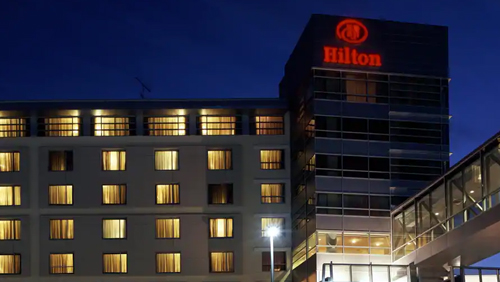 Casinos and other properties that tack on resort fees to their hotel rates should listen up. The industry is being put on notice that the fees are going to begin to come under extreme scrutiny and they need to be prepared for the fallout. The attorney general (AG) in Washington, D.C., recently launched an attack on Marriott International for “deceptive pricing” related to the extra charges placed on hotel stays, and now another AG is going after a different company. Now that the cat’s out of the bag, more are likely to follow suit.
Casinos and other properties that tack on resort fees to their hotel rates should listen up. The industry is being put on notice that the fees are going to begin to come under extreme scrutiny and they need to be prepared for the fallout. The attorney general (AG) in Washington, D.C., recently launched an attack on Marriott International for “deceptive pricing” related to the extra charges placed on hotel stays, and now another AG is going after a different company. Now that the cat’s out of the bag, more are likely to follow suit.
Nebraska AG Doug Peterson submitted a lawsuit this week against Hilton Hotels Corporation for deceptive practices related to its use of resort fees. At properties like Tropicana Las Vegas, which has a Hilton-branded hotel, the charges are mandatory despite Tropicana’s assertion on its website that the rates listed come with “no hidden fees.”
Peterson asserts in a press release, “For years, Hilton has misled consumers in Nebraska regarding the true cost of certain Hilton hotel rooms. They failed to heed warnings from the Federal Trade Commission and the mounting complaints from their own customers.”
The AG adds, “Hilton conceals the true total price of hotel rooms by advertising one rate, then charging mandatory ‘resort fees,’ ‘daily mandatory charges,’ or ‘urban destination fees’ on top of the advertised price. At least 78 Hilton properties in the United States currently charge these hidden fees, which range from $15 to as much as $45 per room per night, and consumers only find out about these fees after they begin to book a room.”
Hilton has allegedly been violating Nebraska law since 2012, according to Peterson. The state’s Consumer Protection Act, as well as the Uniform Deceptive Trade Practices Act, prevents the true price of a hotel room from being hidden and mandates that all booking fees have to be clearly stated upfront with the price. In many cases, the resort fee is added at the very end of the online booking price just before the consumer completes the purchase.
Peterson asserts that the AGs in all 50 states are now looking into the practice. If this is the case, hotel companies — and even some casino operators — could receive an unwelcome court document in the near future, as well.